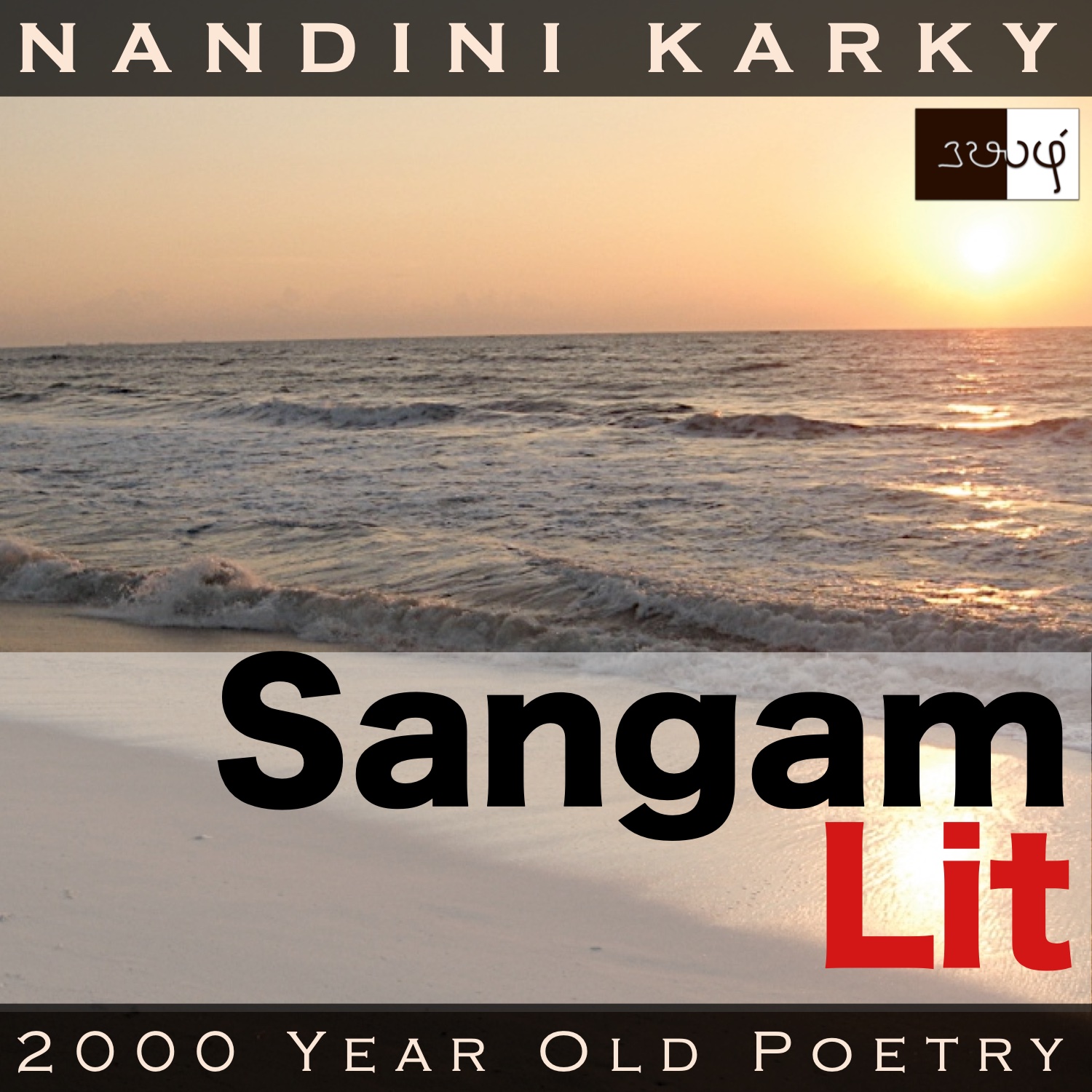Podcast: Play in new window | Download
Subscribe: Apple Podcasts | Spotify | Amazon Music | Android | iHeartRadio | TuneIn | RSS | More

In this episode, we perceive how the time of the day changes its nature in the mind of a maiden, as portrayed in Sangam Literary work, Kurunthogai 386, penned by Velliveethiyaar. Set in the coastal regions of ‘Neythal’, the verse speaks in the voice of the lady to the confidante, in response to the friend’s words that the lady must bear better with the man’s parting.
வெண் மணல் விரிந்த வீ ததை கானல்
தண்ணந் துறைவன் தணவா ஊங்கே,
வால் இழை மகளிர் விழவு அணிக் கூட்டும்
மாலையோ அறிவேன்மன்னே; மாலை
நிலம் பரந்தன்ன புன்கணொடு
புலம்பு உடைத்து ஆகுதல் அறியேன் யானே.
‘I knew not such an evening exists’ says a voice in this verse. The opening words ‘வெண் மணல் விரிந்த’ meaning ‘white sands spreading all over’ situate the song firmly in the beaches of ancient Tamil land. How important jewellery was to women in Sangam times is revealed by the phrase ‘வால் இழை மகளிர்’ meaning ‘maiden adorned with luminous jewels’. It’s as if Sangam poets can’t talk of women without mentioning the jewels they are wearing. Returning, we find sorrow overflowing in ‘நிலம் பரந்தன்ன புன்கணொடு’ meaning ‘with suffering as vast as the spreading earth’. Ending with the words ‘அறியேன் யானே’ meaning ‘I know not that’, the verse welcomes us to explore more.
An evening of suffering indicating parting, no doubt! The context reveals that the man and lady were leading a married life, when the man parted away to gather wealth. In his absence, the lady languished. Worrying about her friend’s health, the confidante advises the lady to bear better with the man’s parting. In response to the confidante’s words of advice, the lady says, “The seashore grove spreads on white sands filled densely with fallen flowers in the moist shores of the lord. When I was not separated from him, I only knew of evenings, when maiden adorned with shining jewels added beauty to the festivities. That an evening is one filled with suffering as vast as the land, and one, brimming with loneliness, I knew not then!” With these words, the lady expresses her inability to bear with the man’s parting when dusk sets in.
Time to explore the nuances. The lady starts by talking about how white sands, densely covered with fallen flowers, spread on the man’s shore. After that description of his land, she talks about the evenings she knew in the past. This was when women who wear glowing jewels would decorate themselves and their houses for the festival happening in town. Perhaps, the lady too was one of them, who had feelings of joy and celebration then. At that time, she never knew that an evening could be filled with sorrow, as vast as the earth itself, and would be one to torment her with loneliness, the lady concludes.
The question the lady puts forth is ‘how come I never knew that the evening would be like this’! She means to ask the confidante ‘how do you expect me to bear with his parting when the evening has changed its nature from one of elation to that of despair?’. Through this verse, the spotlight shines on how elements of the outer world, be it the space around us or the time we are in, seems to change completely, when we miss a person. Those same places and the same time that gave so much joy when in the presence of a beloved becomes a space and time of sorrow in their absence. A gratefulness for what was and a hope for what can be are the only antidotes to this affliction of pining in parting!




Share your thoughts...